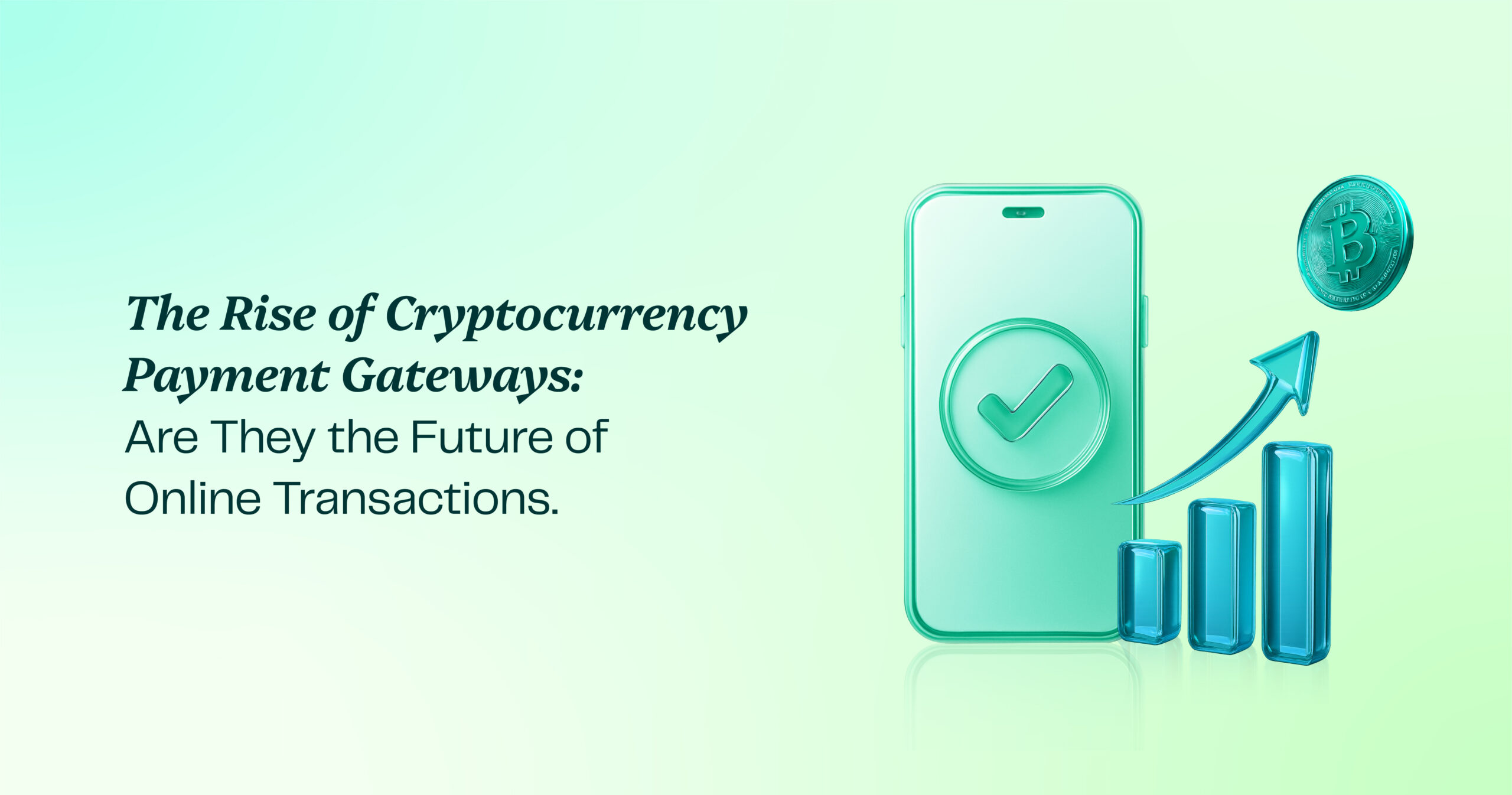Online payment gateway options have broadened their capabilities in response to changing customer expectations, and one of the most significant additions is cryptocurrency acceptance. By enabling direct transfers between digital wallets, these systems offer a payment route that bypasses traditional banking channels.
As more merchants add crypto alongside familiar options such as cards and UPI, the checkout experience is becoming more versatile and inclusive. This shift highlights a key milestone in online commerce, where flexibility and global reach take center stage.
What Is a Cryptocurrency Payment Gateway?
A cryptocurrency payment gateway is an online payment gateway that lets merchants accept digital currencies in addition to or instead of standard methods. It uses blockchain to confirm each payment securely and facilitates peer-to-peer transfers without involving banks.
Key functions include:
- Merchants can instantly swap incoming crypto into local currency, helping to sidestep sudden price swings.
- Every payment is added to a distributed ledger, ensuring it’s secure, transparent, and easy to trace.
- Funds move directly between the customer’s and merchant’s digital wallets using cryptographic keys, cutting out intermediaries.
Popular providers in the space include:
- BitPay: Established in 2011, BitPay enables merchants around the world to accept Bitcoin and Bitcoin Cash.
- Coinbase Commerce: Offers support for a range of cryptocurrencies and can convert them to fiat automatically if required.
- NOWPayments: Integrates with most e-commerce platforms and handles over 100 different digital coins.
Some governments have set up clear license requirements and compliance rules for crypto payment providers. In contrast, others, particularly in parts of Asia, have imposed strict limits or outright bans, underscoring how varied the global regulatory picture remains.
Key Benefits of Accepting Crypto via Payment Gateways
Here’s how adding crypto payments can give your business a boost:
Lower Transaction Costs
You’ll pay far smaller fees than you do with card networks. Without merchant and transaction discount rates eating into every sale, more of your revenue stays in your pocket.
Faster Cross-Border Settlements
Transfers clear in minutes; no more waiting days for banks to process international payments. That speed means you can tap into markets overseas without extra FX markups or hold-ups.
New-Age Customer Acquisition
Digital-first shoppers, especially younger audiences, often prefer paying with crypto. Offering this option sends a clear signal that your brand is future-ready.
Fraud Prevention
Once a payment hits the blockchain, it’s final. No chargebacks and no surprises, cutting out a major headache that comes with traditional card fraud.
Enhanced Privacy and Supply-Chain Capabilities
Blockchain records payments in a way that keeps identities private but verifiable, ensuring customer data stays protected. That same infrastructure powers smart contracts, live inventory monitoring, and greater transparency throughout the supply chain.
Below is a side-by-side comparison of crypto payment gateways versus traditional solutions:
| Feature | Cryptocurrency Payment Gateway | Traditional Payment Gateway |
| Transaction Costs | Typically lower fees, often below 1%; no MDR or TDR | Higher fees ranging from 2–5%, including MDR and TDR |
| Settlement Speed | Fast settlement, often within minutes | Slower, especially for cross-border payments (2–14 days) |
| FX and Cross-Border | No foreign exchange markups; supports seamless international payments | FX fees and delays are common due to intermediary banks |
| Chargebacks and Fraud | Irreversible blockchain records help prevent chargebacks | Chargebacks remain a known risk with card payments |
| Security and Transparency | Blockchain ledger provides strong audit trails and privacy | Centralized systems are secure but vulnerable to breaches |
| Integration and Adoption | Growing options with providers like BitPay, Coinbase, and NOWPayments | Widely supported with established bank and card networks |
| Regulatory Environment | Varies by region; some areas restrict or regulate crypto payments | Consistent, well-defined compliance requirements (e.g., PCI DSS) |
Challenges Holding Back Mainstream Crypto Payment Adoption
Although cryptocurrency payment gateways offer potential benefits, several challenges limit broader adoption:
- In India and several emerging economies, merchants face a patchwork of crypto rules. Since the RBI won’t recognize private tokens as legal tender, many prefer to wait for clearer guidance.
- Cryptocurrency prices can change quickly, making income hard to predict. Even stablecoins, designed to hold a steady value, face their own regulatory hurdles.
- Adding digital wallets and navigating KYC checks often requires extra development and compliance effort, which can slow down a customer’s experience.
- Unlike established systems that seamlessly revert to UPI or card payments when something goes wrong, most crypto-only gateways lack a backup option, so they remain a niche choice.
- Confusion over India’s 30% tax on gains, the 1% TDS, and unclear GST rules makes accounting for crypto transactions tricky. Many businesses hold off until tax treatment is more straightforward.
Crypto vs. Traditional Online Payment Gateways: A Side‑by‑Side
As businesses consider new ways to expand online payment gateway options, it is useful to compare how traditional gateways and crypto gateways perform on key measures. The table below outlines the main differences:
| Feature | Traditional Gateway | Crypto Gateway |
| Transaction Speed | Settles instantly to T+1, depending on bank processes | Near-instant settlement on blockchain networks |
| Cost | Includes MDR, TDR, and fixed processing fees | Lower overall costs with minimal network or gas fees |
| Volatility Handling | Not applicable | Requires stablecoin use or real-time currency conversion |
| Fraud/Chargebacks | Can involve disputes and chargebacks | Irreversible transactions reduce chargeback risk |
| Regulatory Compliance | High, with clear standards and oversight | Varies by country, with evolving compliance requirements |
| Popularity in India | Very high, supported by UPI and card networks | Emerging and currently niche in scale |
| Decentralisation | Centralized systems reliant on banks or processors | Decentralized structure without single points of control |
Should Indian Businesses Prepare for Crypto Payment Integration?
Most Indian companies aren’t under pressure to add cryptocurrency as an online payment gateway option just yet. That said, businesses operating in NFT marketplaces, global SaaS platforms, or the luxury retail segment could see real advantages by getting on board early. Blending crypto with familiar methods like UPI, cards, and popular e-wallets might soon feel as natural to customers as choosing cash or swiping.
Meanwhile, it pays to stay tuned to the Reserve Bank of India, SEBI, and the Finance Ministry for any rule changes. Today, private digital coins aren’t recognized as legal tender, and stablecoin use remains tightly regulated. SEBI’s recent calls for joint oversight hint at clearer, more coordinated guidelines on the horizon.
Broader adoption is likely to follow improvements in compliance frameworks and tax clarity. India’s 30% levy on crypto gains, combined with a 1% TDS on each transaction, makes day-to-day acceptance cumbersome. As tax rules and compliance standards become more transparent, businesses will gain the confidence to add cryptocurrency payments to their checkout options.
Final Thoughts: Crypto May Not Replace, But Will Likely Complement
Cryptocurrency payments are unlikely to fully replace traditional online payment gateway optionsanytime soon. Crypto gateways aren’t meant to replace cards or UPI outright. Instead, they shine in specific scenarios—unlocking new markets, cutting fees, and connecting with digital payment customers when used alongside existing methods.
As rules and tax guidance fall into place, cryptocurrency will slot more naturally into today’s payment networks. Pine Labs delivers a solid, adaptable platform that lets businesses introduce payment options without a hitch.
Contact us today to learn how we can support your journey in expanding payment options.

